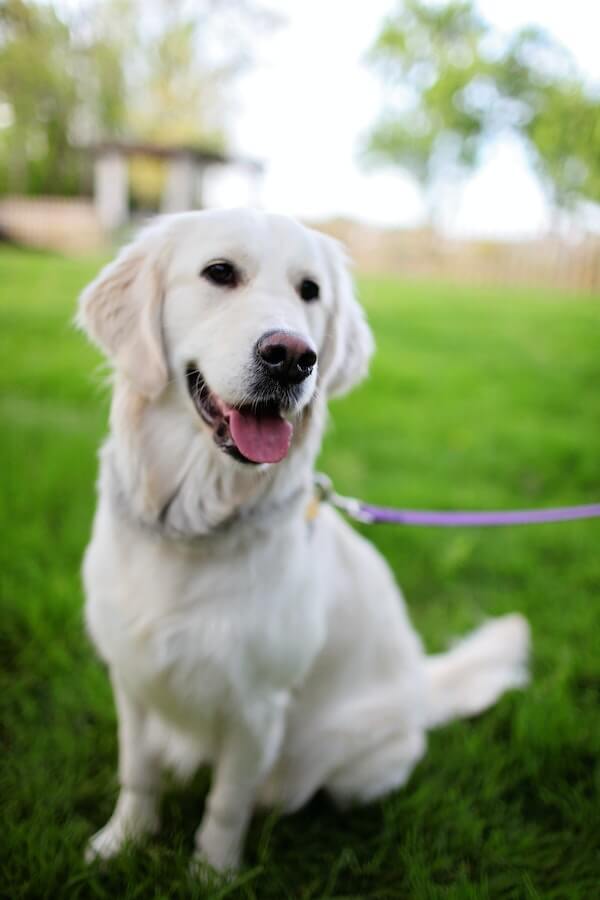
Have you ever noticed your pup acting strangely as it gets older? How do dogs’ behavior patterns change as they age? Well, let’s take a look!
As an experienced pet owner can tell you, our furry friends undergo some major behavioral changes throughout their lifetime.
To better understand our four-legged family members and give them the best care possible, it’s important to be aware of how their behavior shifts over time.
So, buckle up and get ready for an exploration into the mysterious world of aging dogs! Let’s dive in and find out how dogs’ behavior patterns change with age.
Do dogs act weird when they get older?

It’s true that dogs, like humans, act a bit differently as they age. How exactly do their behavior patterns change?
Well, in many ways, it depends on the individual pup and how well you adjust to their needs. That said, there are some common signs that can tell you if your beloved canine is getting older.
For one thing, many elderly pooches tend to be more lethargic and less enthusiastic about playing or going for walks than younger dogs.
This doesn’t necessarily mean they are unhappy—it just means they may need extra rest!
Likewise, an aging dog may appear to be increasingly forgetful or confused when it comes to remembering directions or commands.
Additionally, older dogs may begin to experience more separation anxiety, even if they’ve never had an issue with it before. This could be due to cognitive decline or simply a change in their personality as they age.
Lastly, you may notice that your pup isn’t as interested in food as he used to be. This isn’t uncommon for seniors! To keep them healthy and happy, it’s important to make sure they get proper nutrition and plenty of affection.
At what age do dogs’ personalities change?
Turns out, canine personalities and behaviors can vary drastically over the course of their life. To better understand how to deal with these changes, let’s break it down by age.
Puppy (0-1 year)

Personality: Puppies are often full of energy and enthusiasm. They may also be curious and slightly mischievous.
How to deal with it: Provide plenty of exercise for your pup to burn off some of that energy. Invest in plenty of toys and activities that can help keep them occupied.
Adolescent (1-3 years)
Personality: Adolescents may become more independent and difficult to control. They may also be bolder and more adventurous.
How to deal with it: Socialize your pup with other animals to encourage positive behaviors. Establish a structure for him or her, including set guidelines and expectations for behavior, as well as consistent rewards & punishments.
Adult (4-7 years)

Personality: At this stage, dogs become more relaxed but may also become protective of their owners and possessive of food/toys. They are likely to show signs of obedience when given commands.
How to deal with it: Continue reinforcing the training they received in their early life by providing regular rewards & punishments for good/bad behavior. Make sure that they are getting adequate exercise and mental stimulation to stay healthy & happy.
Senior (7+ years)
Personality: Senior dogs may become more lethargic, but also often display loyalty towards their owners. They can also be slower to learn new commands or tricks.
How to deal with it: Adapt your pup’s lifestyle to fit his or her age: provide plenty of rest & playtime, maintain a consistent daily routine, and reduce stimulants like loud noises or bright lights that could cause anxiety.
No matter what stage of life your furry friend is in, understanding the changes in personality and how to address them can help you give your pup the best care possible!
Bottom Line

Now that you know how do dogs’ behavior patterns change as they age you can tackle their needs and issues correctly.
Of course, every dog is different when it comes to how they handle getting older—but being aware of these potential changes can help you better understand your furry friend during this special time of life.
Love them, nurture them, and always remember: age is just a number for these incredible creatures! With that said… How does your pup behave as they age?
We’d love to hear what works (and doesn’t work!) for your beloved canine companion. Share with us in the comments section
- 7 Dog Breeds With Webbed Feet And Why Do They Have Them - July 19, 2023
- 10 Best Fish For Small Tanks That Make Perfect Pets - July 18, 2023
- How to Breed Guinea Pigs: A Detailed Guide - July 17, 2023


GIPHY App Key not set. Please check settings